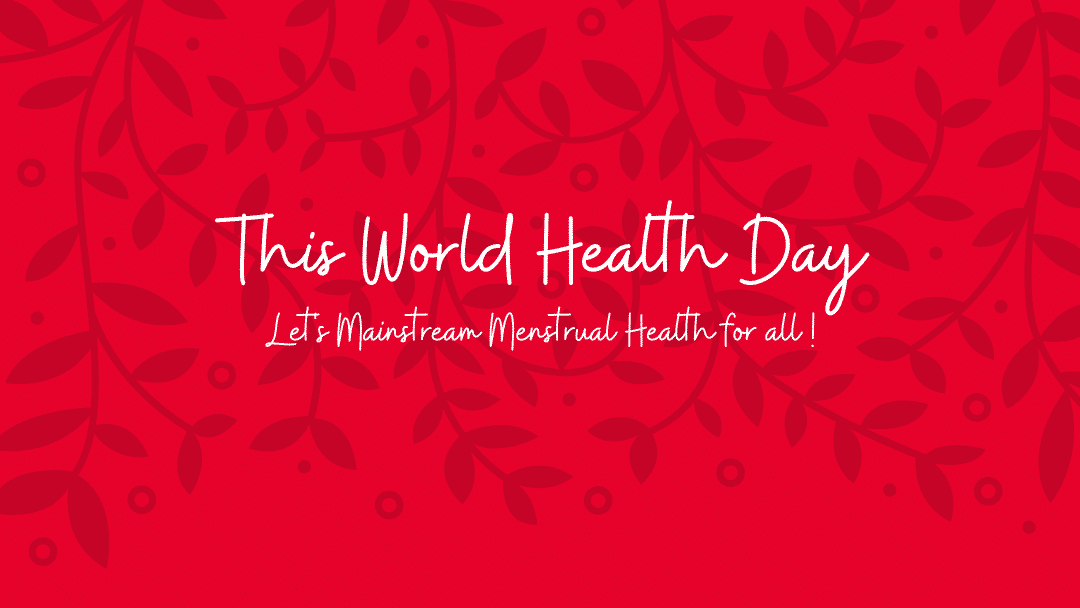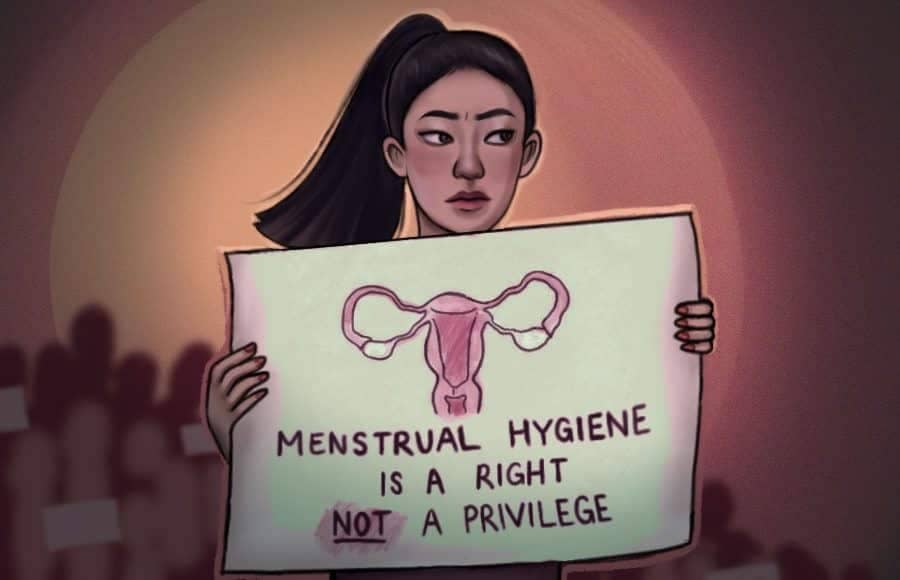Globally, approximately 52% of the female population (26% of the total population) is of reproductive age. Most of these women and girls will menstruate each month for between two and seven days. Menstruation is an integral and normal part of human life, indeed of human existence, and menstrual hygiene is fundamental to the dignity and well being of women and girls and an important part of the basic hygiene, sanitation and reproductive health services to which every woman and girl has a right.
Although menstruation is a normal and essential part of the reproductive system of women , yet often due to societal constructs it becomes a subject of secrecy. In India menstruating women are often considered impure thereby creating health inequity from cradle to grave. Menstrual Hygiene management is crucial to the health of young girls and women yet it is mostly ignored in the areas of WASH leading to crisis of knowledge , attitude and practices.
Unfortunately, the silence and stigma surrounding menstruation makes finding solutions for menstrual hygiene management a low priority. This is often reinforced by the fact that women and girls are not seen as priorities for politicians. The first step is to break this silence. Menstrual hygiene needs to be tackled comprehensively and contextually, to give women and girls the confidence and space to voice their need for improved menstrual hygiene. Menstrual hygiene management needs to be integrated into programmes and policies across key sectors including WASH (water, sanitation and hygiene), reproductive health, emergency, education and rights, from community to global levels.
In 1978 satire for Ms. Magazine, feminist pioneer Gloria Steinem answered the question that so many women have asked: “What would happen, for instance, if suddenly, magically, men could menstruate and women could not? The answer is clear—menstruation would become an enviable, boast-worthy, masculine event: Men would brag about how long and how much,” she wrote. Female Hygiene products are still taxed in our country while men are allowed to enter the bathroom and access anything they need. Even though it sounds unfair, try getting periods in a developing country. In India lack of access to menstrual hygiene products are a secondary issue, the primary issues relating to menstrual health starts with taboos, poverty, lack of education and ignorance.
Women often suffer from lack of control over their bodies and ill health leading to menstrual health problems in pre menarche, during menstruation and post menopause. Basic physical and psychosocial healths are crucially tied to healthy childhood development, puberty and onset of menarche. Often nutritional deficiencies affect the onset of menarche and intensity of PMS symptoms. Early childhood malnutrition is leading risk factor. According to Indian Institute of Population Studies (IIPS) 2017 among girls from 15-19 years of age 47% are underweight and among girls from 15-49 years of age 22.9 % are underweight with 50% in both groups being anaemic. These nutritional imbalances have a significant impact on the menstrual health.
Even in terms of Menopause India’s mean age for onset of menopause ranges from between 41.9 -49.4 years significantly which is lower than global mean of 45-55? Poor nutrition strenuous work, adolescent pregnancy is found to contribute to early menopause. Urban Sanitation in 2019 report stated that only 48% of adolescent girls population in India are aware prior to first period. Urban Sanitation also states that improving access to biodegradable menstrual hygiene products is crucial for achieving SDGs related to Menstrual Hygiene Management.
WASH is also a very important component of menstrual health. As women and girls encounter difficulties in managing hygiene during menstruation, due to lack of enabling environment to do so it leads to low menstrual health. Often due to lack of proper washroom in schools, young girls are forced to stay at home during their monthly cycle or many even dropout of schools on the onset of menstruation leading to lack of proper education and ignorance.
Due to socio cultural silence and shame, Indian women often refrain from reporting symptoms associated with menstrual health and even when they report they are told it’s natural due to lack of knowledge flowing through generations. Hence menstrual health in India is a lot more than just distribution of low cost sanitary pads. Menstrual health in India is still governed by a lot by taboos and stigma and it needs to be addressed through social and behavioural change programs. It’s important that we mainstream and normalize the importance of menstrual health so that women become free to talk about it. It’s time for periods to go public.
One thing that we as an organisation learned, particularly over the last two years or so, is that MHM doesn’t just affect girls in schools, but women in the community and beyond that again it has implications across all sectors of society. If woman does not have employment opportunities as a result of poor MHM then a family suffers; if a girl leaves school early all the evidence points to her marrying younger and having more children, this impact is generational. The need to also include males in society across all ages in the process is becoming more apparent, MHM has to become an open topic for discussion if real change is to happen and be sustainable.
WASH Infrastructure in schools is essential for a successful MHM programme. Without appropriate washrooms and latrines managing MHM is impossible. The implementation of personal hygiene lessons in a school through our Happy Periods Programme contributes to the success of Project Unnati.
It is becoming more apparent to us as we continue to work in this field that it is not all about the pad or the product, access to products is an issue but MHM is about more than pads. The access to products is evolving rapidly with more options becoming available all the time and becoming more accessible to most but there are still major gaps. Our ‘Project Unnati’ which aims at self sustaining women when it comes to the menstrual products requirements at the same time providing them with an alternative livelihood option has tried to fill this gap.
There are many changes occurring in our programmes around the area of MHM, we hope to reach more communities than ever in the year ahead. The need for a multi-dimensional approach is foremost on the agenda and we will be taking all that we have learned in the past few years and incorporating it into future programmes.



